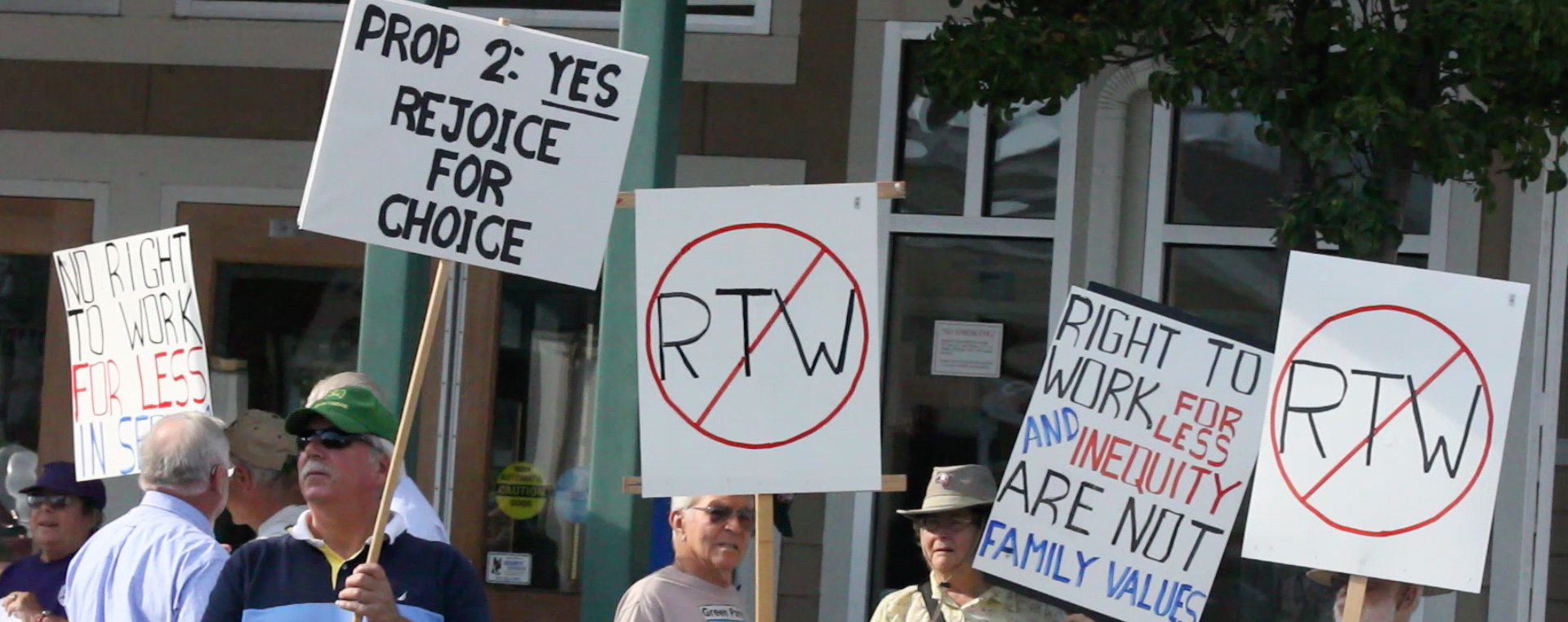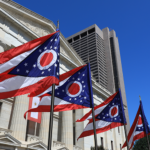The Sequim City Council took no official action on Monday night, but signaled it may throw up a legal roadblock that could keep a pair of labor reform initiatives off the ballot in that community until the matter is resolved.
If adopted, the measures would accomplish two goals:
- Proposition 1 would require collective bargaining meetings between the city and its 48 unionized employees to be open to the public; and,
- Proposition 2 would permit city employees who chose not to join the union or pay a representation fee to keep their jobs.
Representatives from organized labor and leftist groups like MoveOn.org and the Green Party, who had been bused in for the occasion, confronted initiative backers on the sidewalk outside the Sequim Transit Center.
Both sides waved signs and chanted protest slogans before the meeting convened.
The council was expected to take one of three actions on Monday. It could have voted to adopt the initiatives into law; it could have rejected the measures, sending them to the ballot in either November or February; or, it could have claimed there were legal or constitutional grounds why the city residents shouldn’t be allowed to vote on the matter.
Following an hour of public testimony and an hour in executive session, Mayor Candace Pratt announced the council would defer action until its next scheduled meeting, on Sept. 8.
City attorney Craig Ritchie, however, indicated after the meeting that he had urged the council to take the third option, invalidating the initiatives on legal or constitutional grounds. He declined to specify what those grounds might be, however.
A Freedom Foundation spokesman said the organization would help the initiative activists respond to any legal challenge, but hoped the council would simply let the voters decide the issue.
Critics of the initiatives argued the measures were little more than an effort by the Freedom Foundation and like-minded organizations to cripple unions.
“The council should be appraised of who these people are that are pouching for this initiative,” said Nelson Cone, a Port Angeles resident wearing a Green Party t-shirt.
Cone noted that the Freedom Foundation was founded by former Republican legislator Bob Williams, who currently serves on the board of the American Legislative Exchange Council (ALEC), a nonpartisan membership association for conservative state lawmakers who share a common belief in limited government, free markets, federalism and individual liberty.
He also revealed that the Freedom Foundation supports such liberal flash-point issues as voter registration and school vouchers.
“We don’t need them here,” Cone said.
“The … Freedom Foundation is trying this in every community it can in Washington, and the idea is flatly union busting,” added Sam Woods, co-organizer of Move.on Clallam County. “The transparency initiative wouldn’t be a problem, except that it only applies to contract negotiations, which makes me a little suspicious of their motives.”
During his testimony, Freedom Foundation labor policy analyst Max Nelsen explained the emphasis on that narrow point.
“The initiative singles out contract negotiations because state law already singles out collective bargaining for an exemption from the Open Public Meeting Act standards that govern all other public meetings,” he said. “The state doesn’t require that meetings be held in secret, but it allows it, and that’s not in the best interests of the public or the unions.”
Nelsen stressed that the Freedom Foundation was not and could not be the driving force behind the initiative effort.
“We’re here at the request of the local activists to provide moral support,” he said, because the goals of the initiatives are consistent with the Freedom Foundation’s mission to promote free markets and limited government.
“We’ve heard a lot of hyperbole tonight about what these initiatives mean,” Nelsen said, “but it really boils down to just two issues—transparency and freedom of choice. It’s really just that simple.”










